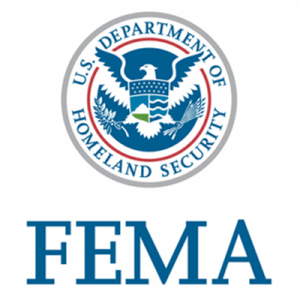
When disasters and major emergencies occur, the Federal Emergency Management Agency (FEMA) is expected to move into action quickly and efficiently. Unfortunately, that does not always happen. In fact, FEMA’s performance over the past few years cried out for improvement. Changes have now been implemented. That’s important for a number of reasons. Victims of disasters need attention immediately, and taxpayers want their money to be administered with careful oversight. There is yet another reason to pay attention to the most recent FEMA changes – the agency is a huge source of contracting opportunities. It should never be overlooked by private-sector firms.
FEMA contracts with companies that are judicious enough to get their products and services vetted and their prices pre-negotiated. That’s the first step and it is an easy one. Unfortunately, many companies never manage to get their paperwork handled. When that occurs, all parties, including taxpayers, are losers.
 Hurricane Katrina was the nation’s costliest storm on record, and FEMA was the primary administrator of aid disbursement in its aftermath. FEMA contracts worth billions of dollars were awarded to private sector contractors. More than 1,200 companies, including many small firms, assisted with relief efforts.
Hurricane Katrina was the nation’s costliest storm on record, and FEMA was the primary administrator of aid disbursement in its aftermath. FEMA contracts worth billions of dollars were awarded to private sector contractors. More than 1,200 companies, including many small firms, assisted with relief efforts.
When large sums of money are at risk, there is always a chance that some of it will be wasted, but that is almost a certainty if contracts are awarded on a no-bid or limited-competition basis, as was the case after Katrina. The Government Accountability Office (GAO) conducted a performance audit on FEMA’s management and found many areas of grave concern. Part of the problem was that too few companies were eligible to contract with FEMA and the agency did not have time to vet contractors for products or services.
Hurricane Katrina has not been the only major disaster that brought negative attention to FEMA. In the aftermath of Hurricane Sandy, the federal government responded by disbursing more than $60 billion in emergency spending. New Jersey, one of the hardest hit states from Hurricane Sandy, came under fire because of disorganized recovery efforts. Again, there is room for improvement on the government’s side and there is also a need for contracting firms to be engaged. In an attempt to remedy some of the problems, lawmakers in the House have passed what is called the FEMA Disaster Assistance Reform Act.
The FEMA reform bill has gone to the Senate Committee on Homeland Security and Governmental Affairs. It has been well received and it is expected to pass. But, there is little time to waste. FEMA awards thousands of contracts each year but only prime and subcontractors who are registered are eligible. Here’s what needs to happen quickly:
- Register your company with the System for Award Management (SAM). SAM is considered the primary research tool for Contracting Officers. The process takes 7-14 business days for new registration and 5-7 business days for renewal. Vendors must have a Data Universal Numbering System (DUNS) number to register.
- Submit a completed FEMA Profile to the Industry Liaison Support Center.
- Vendor profile forms can be found online or requested via email. The Industry Liaison Program maintains an enterprise-wide repository of vendors and processes and routes vendor profile data to the appropriate FEMA program offices.
- Search the Federal Business Opportunities website for procurement opportunities. It is important to request notifications when opportunities arise based on a company’s NAICS code.
- Reach our occasionally to the FEMA regional office in your area and build a relationship.
There is no cost to register and the process is simple. In fact, the Vendor Profile form is only one page long and most business owners can navigate SAM and FEMA registrations without assistance. However, here’s the number to call if there are questions or issues – 1- 866-606-8220.
What’s not to like? Get registered and become eligible for opportunities to provide goods and services the next time there is a disaster somewhere in the United States. SPI’s government procurement experts can assist you with the process.
